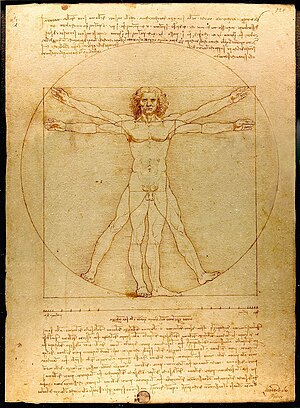For Humanity, there's a new generation(minus overlapping growths) every fifteen to twenty years(when a human being becomes fully capable mentally). Problem? Well, there wasn't much of a problem two or three generations ago; but, today, the information is so large, each new generation cuts off what it needs to learn. In some sense, they abstract, for good or bad, the amount of information they need to survive or get the job done.
One of those learned men that I feel has been abstracted out is Jacob Bronowski and even James Burke.
Mathematics and mathematicians have a trick to deal with information overload; they sum them up in vast generalizations as theorems. Mathematicians argue each generation whether learning mathematics through axiomatics or much thicker, more concrete tombs gets the point across; they end up writing both.
Non-mathematicians tend to just learn the tricks of some previous generation; this was the way it was done in the my Navy experience; my generation guys didn't really know electronics; they just learned what often goes wrong and what often seems to be the answer; if something novel happened, they'd guess and guess and guess some more; then, first the chiefs would come in and then the officer pilots would come into the shop wondering if they have competent avionic technictians! Of course, the fault goes to how they trained us to learn electronics for nine months in the first place - non-mathematically; always just rough descriptions; why? Because none of them knew electronics, or could deduce all the principles of electronics(like series, parallel, and series parallel lrc circuits) from Maxwell's equations(it can be done; i'm talking about how Newton deduced Kepler's laws from his inverse square law; or Quantum mechanics can derive the atoms of the periodic table).
Isaac Asimov through his robots, empire, and foundation stories had the best sense of these historical matters. James Burke certainly tries to convey some of it.
James Burke shows how the Astrolabe was used to create precise measuring instruments and then machine tools; he later on shows how the astrolabe turned over created a device for military guys to measure the angle of elevation for their cannons. The point is that the astrolabe could not be created by anyone of them; if civilzation had fallen, and the astrolabe never got learned from generation to generation, they would have had to relearn the night sky; it takes years if not lifetimes - consider trying to learn the night sky when bears and leopards are trying to eat you; also waring with other tribes; then, there's environmental catastrophes . . . ; similarly, the geometry that allowed the astrolabe to come about was dependent on learning astronomy. And the geometry? The mathematics of the astrolobe was that of projection of the hemisphere of the night sky onto a plane(the astrolabe).
Look, at any one point, to learn any one of those things, astronomy, or geometry took the right social conditions to raise someone with the mental/emotional fortitude to think out of the box. Some people can't stand running because they don't like wearing shorts. Likewise, some people don't like thinking because of some social reason; they get fear mongered by people wondering why you're running around with a book or something. Learning is similar to running; when you run, your body learns to run; without preparation, the run is unsuccessfull; similarly for thinking; without the proper preparation, the astronomy isn't learned, the geometry isn't learned, the astrolabe isn't learned, the precise instrumentation for the machine tools cannot be learned. But then, after the machine tools are made, they can teach the next generation to use and make those machine tools without learning the astrolabe, astronomy; the next generation doesn't have to grow up with those experiences; what happens if the problems posed by the use of those machine tools and the steam engine doesnt' get solved? The next generation doesn't know where to begin! They don't have the general perspective. Today, we're a lot more steps beyond those formative stages that allows our push button society to get their money, food, and knowledge.
Further, nano-manufacturing is about to turn the agricultural class structure society on its head. In a nano-manufacturing era, every man can live on his own for free. He doesn't need money to get food. He just needs the skills to know how to ask the right questions, to get his nanomanufacturing system to made the food for him, the medical knowledge to solve his medical problems. They can bootstrap to get themselves out of whatever situation they find themselves in. But, without understanding the true nature of mathematics, they are lost!
Don't think nanomanufacturing is going to happen?
Here, we have molecules brought together to make functional molecule assemblies. It was done using stms(scanning tunneling microscopes) and in this case rna tips. Nanomanufacturing engineers should be able to make fast progress now!


No comments:
Post a Comment